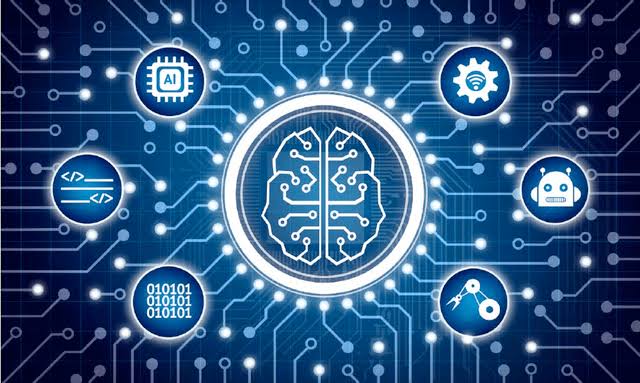Question answering systems are transforming how people access and interact with knowledge. By combining language understanding, intelligent retrieval, and contextual response generation, they deliver precise and efficient answers in a fraction of the time traditional search methods require.
Question Answering Systems: Building Intelligent Machines for Knowledge Retrieval
In the evolving landscape of artificial intelligence, question answering systems have emerged as one of the most impactful technologies for information access. These systems are designed to understand questions posed in natural language and provide accurate, relevant, and context-aware answers. Unlike traditional search engines that return a list of potential resources, question answering systems aim to deliver precise responses directly, saving time and improving efficiency. As of 2025, advancements in natural language processing (NLP), machine learning, and knowledge representation have made these systems more intelligent, adaptable, and accessible across various applications.
Understanding the role of question answering systems
At their core, question answering systems are built to interpret user queries, retrieve relevant data from structured or unstructured sources, and generate answers that match the context and intent of the question. This involves several layers of processing, including language understanding, information retrieval, and answer generation.
These systems can be open-domain, meaning they handle general knowledge questions from a broad range of topics, or closed-domain, focusing on a specific field such as medicine, law, or customer support. The scope and accuracy of the system depend on the quality of its training data, the sophistication of its algorithms, and the structure of its knowledge base.
Key technologies behind modern question answering systems
The effectiveness of a question answering system depends on the integration of multiple AI-driven components. The most significant include:
* Natural language processing to understand the syntax, semantics, and intent of a query.
* Information retrieval algorithms to search structured databases or unstructured text sources.
* Machine learning models, particularly deep learning architectures, to enhance accuracy and adapt to new patterns.
* Knowledge graphs to represent relationships between entities and concepts in a way that machines can process.
* Context-aware answer generation that ensures responses fit the user’s question, tone, and purpose.
By combining these technologies, modern systems can interpret complex, conversational queries and deliver answers that feel human-like and relevant.
Applications in various industries
Question answering systems have found uses in numerous sectors. In customer service, they power chatbots that can handle routine inquiries, reducing the need for human intervention. In healthcare, they assist medical professionals by retrieving information from clinical databases and research papers.
Educational platforms use them to provide instant feedback and explanations to students, while corporate environments deploy them to search internal knowledge bases and streamline workflow. In news and media, these systems help users access factual summaries without sifting through lengthy articles.
Enhancing efficiency and productivity
The primary benefit of question answering systems lies in their ability to save time. Instead of searching through multiple sources, users receive direct answers in seconds. For businesses, this means faster decision-making, reduced operational costs, and improved customer satisfaction.
In research environments, these systems allow professionals to quickly find relevant studies or data, enabling them to focus on analysis rather than time-consuming searches. Over time, the system learns from user interactions, improving accuracy and reducing repetitive queries.
Challenges in building effective systems
While question answering systems have advanced significantly, several challenges remain. Understanding context in complex or ambiguous questions can still be difficult. Systems may misinterpret intent if the query contains idioms, sarcasm, or cultural references.
Another challenge is ensuring the reliability of sources. Systems that retrieve information from unverified databases risk providing incorrect or biased answers. In sensitive fields like healthcare or law, such errors could have serious consequences. Privacy and security are also concerns, especially when handling personal or confidential data.
Advancements in 2025 technology
Recent developments in AI have addressed some of these challenges. Large language models trained on vast, diverse datasets can now process multi-turn conversations and maintain context over long exchanges. Reinforcement learning techniques help systems refine their answers based on user feedback.
Hybrid models that combine symbolic reasoning with neural networks allow for more accurate fact-checking and logical reasoning. Additionally, integration with blockchain-based data verification is emerging as a way to ensure the credibility and traceability of information sources.
The role of personalization in knowledge retrieval
Personalization has become a significant trend in question answering systems. By analyzing user preferences, search history, and context, systems can tailor responses to individual needs. For example, a finance-related question might be answered differently for a novice investor than for a financial analyst.
This adaptability makes interactions more relevant and user-friendly, turning the system into a personalized knowledge assistant rather than just a static information source.
Future prospects for question answering systems
Looking ahead, question answering systems will likely become even more integrated into daily life. Voice-activated assistants, wearable devices, and augmented reality interfaces will make it possible to retrieve information seamlessly in any environment.
Advances in multilingual NLP will enable truly global accessibility, allowing users to ask questions in one language and receive accurate answers in another. Real-time data integration from IoT devices could also make these systems essential for managing smart environments, from homes to industrial facilities.
